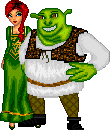Compare the media portrayal of two social groups.
How the media portray women:
Television:
Stereotypes in Hollyoaks Carmel-blonde bimbo, Tina- clever/geeky and Michaela- troublemaker
Sitcoms like FRIENDS- use stereotypes buy role reversal as well to show the equality of men and women
Film:
Lack of women directors, so most movies are seen through a man’s perspective
Women stereotypes – “bimbo”, “geek”, “Madonna/whore” complex, “femme fatale”, “housewife”Women as powerless, passive, weak
However, James Bond, Casino Royal (2006) introduces “female gaze” shows society is pluralistic and promotes progressive values
Adverts:
Adverts- women shown with phallic objects
Newspaper/news:
Lack of women in news and politics -Token females in high jobs e.g. Rebekah Wade- successful women editor for “The Sun”
Most of the women in the media conform to the “male gaze”- Mulvey, women are objectified in newspaper “the sun”- Rupert Murdoch introduced pg3 when he re-launched the tabloid reinforces patriarchy.
Music:
Pussycat Dolls – conform to be objectified but sing songs promoting “girl power”
How the media portray Asians:
Television
Goodness Gracious Me-self representation- brown clowns- Stuart Hall
67% of Asians feel they are better represented on television now
Film
Islamophobia-Popular films ranging from Hollywood blockbusters to children's cartoons are portraying "crude and exaggerated" stereotypes of Muslims such as the Disney film Aladdin represents Arabs as "(cruel) ruthless caricatures (humorous illustration) "with "exaggerated and ridiculous accents”.” Good Arabs" including Aladdin are given American accents while the rest of the cast have "exaggerated and ridiculous Arab accents".- promotes American hegemony
Similarities:
Represented negatively
Are seen at “the other”
Placed in stereotypes
Differences:
Representations are becoming progressive this is because the media need to cater for all groups as if they don’t appeal to the Asians they are going to loose a target audience as audience.
Thursday, May 17, 2007
Subscribe to:
Post Comments (Atom)



1 comment:
Very good...and although there is no explicit request for you to do so, I would argue that it's important, nevertheless, to discuss - albeit briefly - some of the reasons why (the groups are portrayed in this way).
Post a Comment